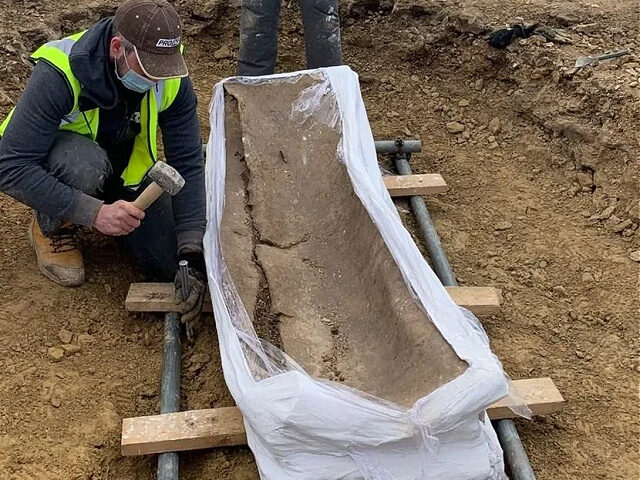The coffin of a Roman aristocrat was exhumed in the United Kingdom. Researchers say this discovery could “unlock the secrets of one of the most significant periods in British history.”
The government of Leeds and West Yorkshire Joint Services announced researchers had discovered a lead coffin, which they believe contains the “remains of a late-Roman aristocratic woman” during an archeological dig, along with the remains of over 60 other people.
These remains were found in a 1,600-year-old cemetery in Leeds and “are believed to include both late-Roman and early-Saxon people” based on “burial customs of both cultures [having been] found in different graves.”
Museums and Heritage reported researchers undertook the dig after “late Roman stone buildings and a small number of Anglo-Saxon style structures” were discovered nearby.
The press release noted the discoveries could help archeologists “chart the largely undocumented and hugely important transition between the fall of the Roman Empire in around 400AD and the establishment of the famed Anglo-Saxon kingdoms which followed.”
Quoting David Hunter, the principal archeologist at West Yorkshire Joint Services, the BBC noted that the composition of the coffin is of particular interest to researchers because “Lead coffins were expensive. The fact the family gave this person the expense of getting sheets of lead and the expertise to make the coffin, then it tells us a lot.”
Hunter is quoted as saying in the press release that the discovery “has the potential to be a find of massive significance for what we understand about the development of ancient Britain and Yorkshire,” adding:
The presence of two communities using the same burial site is highly unusual and whether their use of this graveyard overlapped or not will determine just how significant the find is. When seen together the burials indicate the complexity and precariousness of life during what was a dynamic period in Yorkshire’s history.
Researchers are planning to conduct various tests, including carbon dating and other tests to learn more about the ancestry and dietary habits of the people whose remains were found.
The press release noted the “extremely rare” lead coffin will be featured in a Leeds City Museum exhibition focused on “death and burial customs from across the world.”

COMMENTS
Please let us know if you're having issues with commenting.